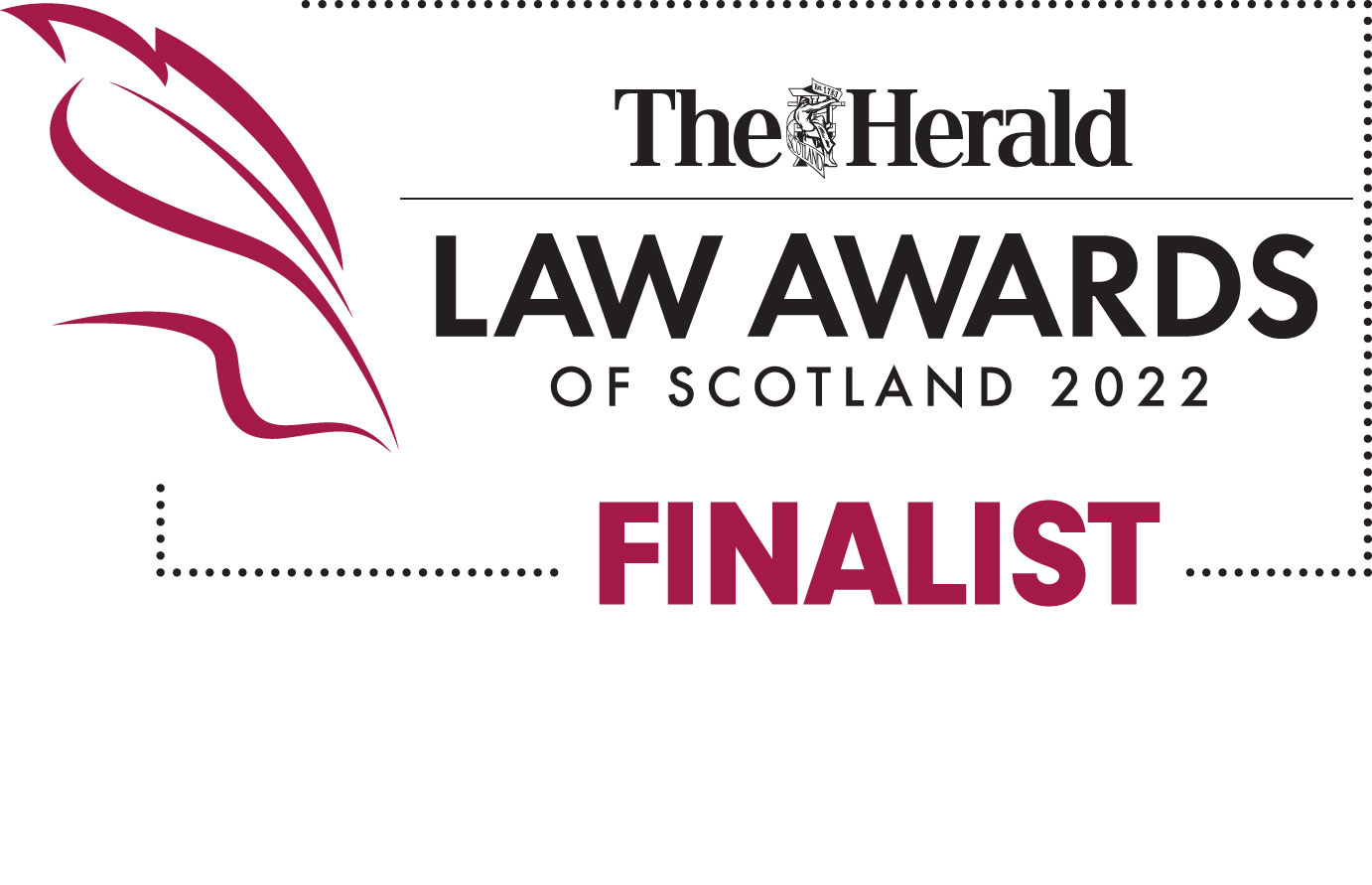Call us now: 0141 429 8166
Call us now: 0141 429 8166
The word ‘discrimination’ is often used to describe being treated unfairly, but the law does not prevent employers from treating employees differently: otherwise managing a workforce would be impossible.
What the Equality Act prevents is employers treating employees differently for a particular reason which has nothing to do with their work but is based on something personal to them – these are called ‘protected characteristics’. That treatment is ‘unlawful’ and entitles the employee to damages.
There are 9 protected characteristics:
‘Belief’ has been developed further by the courts to include a particular philosophy or world-view, including veganism, man-made climate change, and public service.
There is no minimum length of service required for anyone to bring a claim for unlawful discrimination – in fact, a claim can be made by someone who never in fact ever becomes an employee, e.g. if a job advert is discriminatory (“young woman required”).
This is complicated. Employers and employees can both be liable for acts of discrimination which happen in connection with work. So claim for discrimination can be brought against the employer (as an organisation) and also against the individual who made the decision/comments etc.
It will be the role of the Employment Tribunal to decide whether the employers is liable for the acts of their employees, even though they may not have known or had any input into the decision. This is known as vicarious liability. An employer can contest vicarious liability by showing they took all reasonable steps to try to prevent discrimination from occurring in the first place, e.g. by means of training staff.
While claims for unfair dismissal are ‘capped’ in the ET at one year’s salary, there is no such limitation on damages for discrimination are technically uncapped in the amount a panel can award. The damages measure ‘injury to feelings’. Often this depends on medical evidence, e.g. whether any medication was required. There are published guidelines, known as the ‘Vento’ bands, which are Lower (£900-£9000), Middle (£9000-£27,000), and Upper (£27,000-£45,000).
There are 4 ways in which discrimination can occur due to any of the 9 protected characteristics:
Direct discrimination, Indirect discrimination, Harassment, Victimisation:
There are two additional ways in which those who are treated as disabled under the Equality Act can be discriminated against – failure to make reasonable adjustment and discrimination arising from disability. These are also a whole host of rules covering employees who take maternity leave. Each are covered in more detail in our dedicated pages to disability discrimination and maternity rights.
If you are facing a claim, or are being treated unfavourably at work, then contact our team of expert Employment Lawyers who can advise you about what options you have. Call us on 0141 429 8166 or complete our online contact form.
Pregnant employees have several rights which an employer cannot refuse. These include:
If you feel that your employer is not aware of your legal rights, or has treated you differently because you are pregnant, then you should seek expert advice from an employment lawyer immediately.
Call our team on 0141 429 8166 for a confidential discussion or complete our online contact form.
As well as growing physically, pregnancy involves expansion of the vocabulary by learning lots of new words. Unfortunately, UK law contains a hotch-potch of terms which are similar-sounding but not interchangeable, and some rights do not apply to all new mothers.
The total entitlement is 52 weeks, divided into two parts: the first 26 weeks are ‘Ordinary Maternity Leave’, and the last 26 weeks as ‘Additional Maternity Leave’.
The earliest that Ordinary ML leave can begin is 11 weeks before the expected week of childbirth, unless the baby is born early, when it starts automatically.
The full entitlement does not need to be taken, but no pressure should be applied by the employer for the employee to come back to work sooner.
On health and safety grounds, even if she agrees, the employee is not allowed to return to work until at least 2 weeks after the birth, or 4 weeks if in a factory or similar manual job.
After the leave has started, there is a duty on the employer to notify in writing the latest date that the leave can run to. The employee can choose to return before that, but must give at least 8 weeks’ notice of this.
If the baby dies, the entitlement to leave remains, if this occurs after the 24th week of pregnancy.
Statutory Maternity Pay is paid for a maximum of 39 of the 52 total leave entitlement, but the amount changes:
Tax and National Insurance need to be deducted from these. But the employer has the SMP reimbursed to them.
However not all employees qualify for SMP – they must have been:
Employees who are not entitled to SMP may be able to get Maternity Allowance instead if they have made enough National Insurance contributions. This lasts for a maximum of 39 weeks.
This is far easier to summarise – all employment right (e.g. bonus, holiday pay, pay rises) which are given to others must be passed on after maternity leave, anything short of this potentially gives rise to a claim of discrimination.
In a redundancy situation, there is also a positive duty on the employer to offer any available role first to anyone returning from maternity leave. But if there are a number of redundancies, an employee on maternity leave can still be dismissed.
Our team of expert Employment Lawyers can meet with you, discuss every aspect of your case, advise you about what options are available to you, and guide you through every step of the process. This can range from giving you advice, to writing to your employer to try and fix the problem, to bringing a claim at the Employment Tribunal. Call us on 0141 429 8166 or complete our online contact form.
Disability discrimination occurs when employees are treated less favourably than their colleagues because they have a disability or when they are treated unfavourably because of events connected with their disability.
It can be dismissal or leaving someone with no choice but to leave (called ‘constructive dismissal’). But the employee does not have to leave – it be being demoted, ignored, or simply being denied the opportunities being given. Very often it relates to how someone is treated when off sick due to a medical condition. A claim can be made while still employed.
In the context of discrimination law, ‘disability’ has a precise legal definition which is: A physical or mental impairment which has a substantial and long-term adverse effect on your ability to carry out normal day-to-day activities. Common conditions that could be a disability include depression, anxiety, back pain, or even a broken leg. Medical records are usually obtained to support this, but often an Employment Tribunal will also want to hear evidence from the person claiming disability.
Discrimination can occur against people with a disability in a number of ways. Four of them are the same recognised ways that it happens against people due to their age, sex, race, religion, etc.:
In addition, there are another two ways in which discrimination can occur in disability cases:
If you are a disabled person, then your employer is under a duty to make adjustments to their policies, procedures, or premises to avoid your suffering a disadvantage when compared with your colleagues. Your employer should also provide you with any auxiliary aids necessary to ensure you can don’t suffer any disadvantage.
Reasonable adjustments can include installing a ramp in the premises, providing you with an ergonomic chair, or making changes to the company disciplinary policy. The defence to this for an employer is referenced in the term itself – what is reasonable? Each individual circumstance will be different but guidance on this can be obtained from previous cases and the legal interpretation that has been given to the Equality Act.
Discrimination arising from disability is when someone is treated unfavourably because of something arising in consequence of disability rather than the disability itself. This is what makes it different to direct discrimination.
Examples include:
With this form of discrimination, there is no need to compare the treatment with someone else, but you do need to prove the employer knew (or should have known) that you were disabled. The employer can defend the case by arguing that what they were doing was a ‘proportionate means of achieving a legitimate aim.’ Examples would be: running an efficient service, requirements of the business, or wish to treat everyone the same. But it will not be a defence for the employer to simply say that it was going to cost money to eliminate the discrimination.
If you have had a disability claim brought against your company or think you have been treated unfavourably at work because of your disability, then contact our team of expert Employment Lawyers who can advise you about what options you have. We have experience in this area, including in the Tribunal. Call us on 0141 429 8166 or complete our online contact form.

Livingstone Brown is a leading firm of Scottish solicitors. Based in Glasgow, but dealing with cases around the country, the firm has been at the forefront of legal service provision for over thirty years.
If you have a legal problem, getting good quality legal information at the earliest stage can be invaluable. The firm offers a free initial enquiry service; all you have to do is call in, telephone, or e-mail. You won't be charged for your enquiry; we'll let you know by return whether we can help, what we can do, and how much it's likely to cost. We can also offer legal aid where available.
Led by former senior partner Gerard Brown CBE, who continues as a consultant, the firm has built up an enviable reputation for quality of service and client care.
The firm has won various awards over the years. In the 2019 edition of the prestigious Legal 500 rankings Livingstone Brown was ranked as a 'top-tier' firm for general criminal work, and is also recommended for fraud cases. Stuart Munro and Gerard Brown were named as 'Recommended Lawyers'. In the Chambers directory the firm has a Band 1 ranking for criminal work, and Stuart Munro is a ranked financial crime lawyer. The firm was named Criminal Defence Firm of the Year and Family Law Team of the Year at the Scottish Legal Awards 2019.
Reliable, expert advice you can trust. Get in touch today










